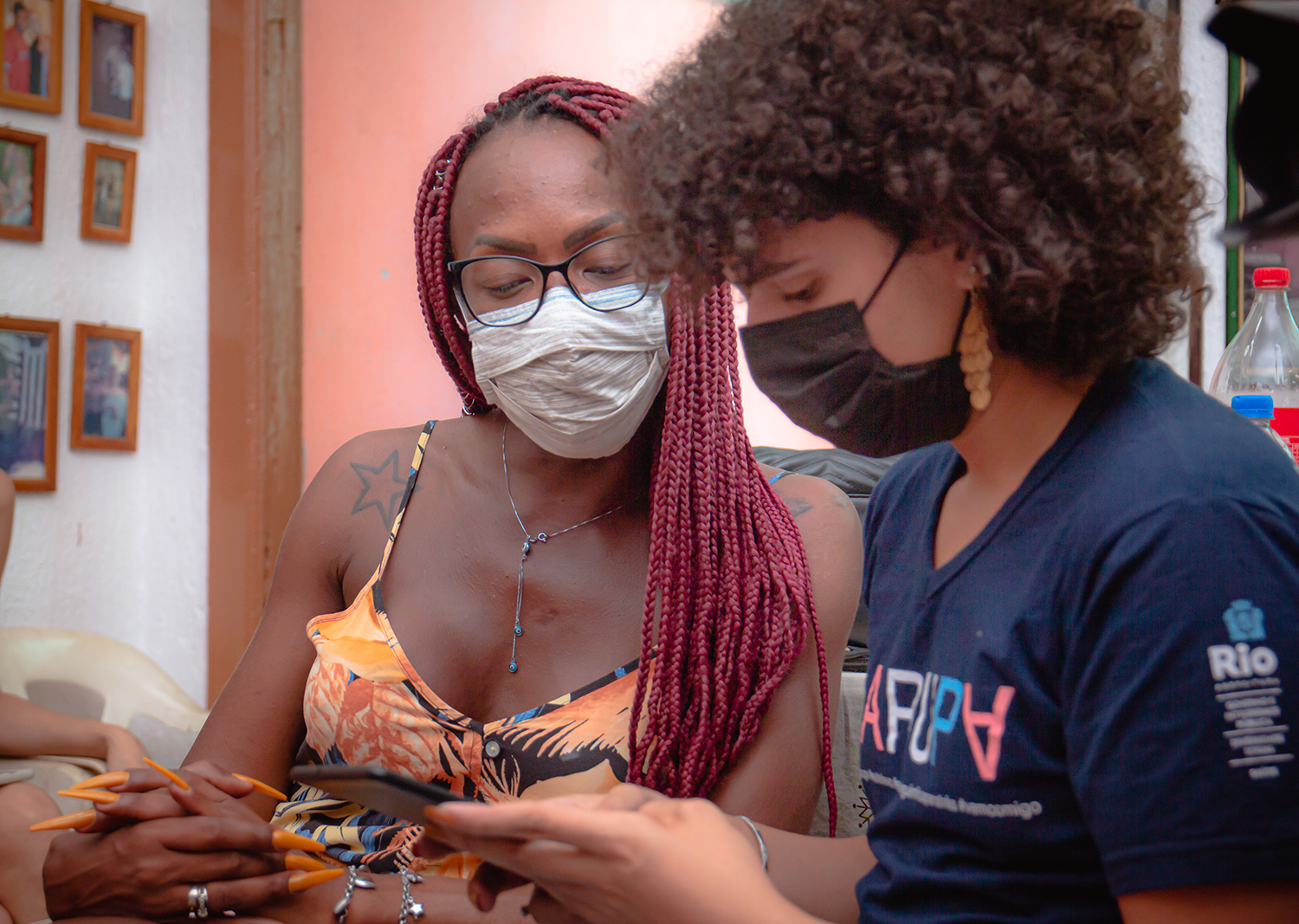A year ago, amid the global rush to roll out COVID-19 vaccines to as many people as possible, the Partnership for Healthy Cities committed to supporting vaccine equity projects in 18 cities in its network. It was clear that the pandemic was exacerbating health disparities—as was the uneven global vaccine delivery itself—so a package of grants and technical support went to Partnership cities employing innovative approaches to reach their communities.
Get Our Latest Public Health News
Join our email list and be the first to know about our public health news, publications and interviews with experts.
The results have been remarkable, with almost 3.5 million people vaccinated through the program, more than 200 million people around the world viewing media campaigns to boost vaccine confidence, supplies sent to mass vaccination sites on several continents, and long-term public health investments secured for expanding disease surveillance capacity, training health care workers and more.
The vaccine initiative came in the second year of the Partnership’s program to support pandemic response, an expansion of the network’s mission to support cites on prevention of noncommunicable diseases and injuries. In collaboration with Resolve to Save Lives and the World Health Organization, the Partnership enlisted the world’s leading experts on epidemic prevention, with technical assistance and funding from Bloomberg Philanthropies and Vital Strategies rounding out the picture.
The Partnership for Healthy Cities COVID-19 response work has focused on technical and financial assistance geared toward challenges faced by every city during the pandemic—ranging from planning for vaccine distribution rollouts to managing risk communication, and from maintaining city services to implementing legal guidance on measures that protect health and safety.
Here are highlights from eight cities working with the Partnership on pandemic response since April 2020:
Abidjan, Côte d’Ivoire: Vaccine Communication Campaign
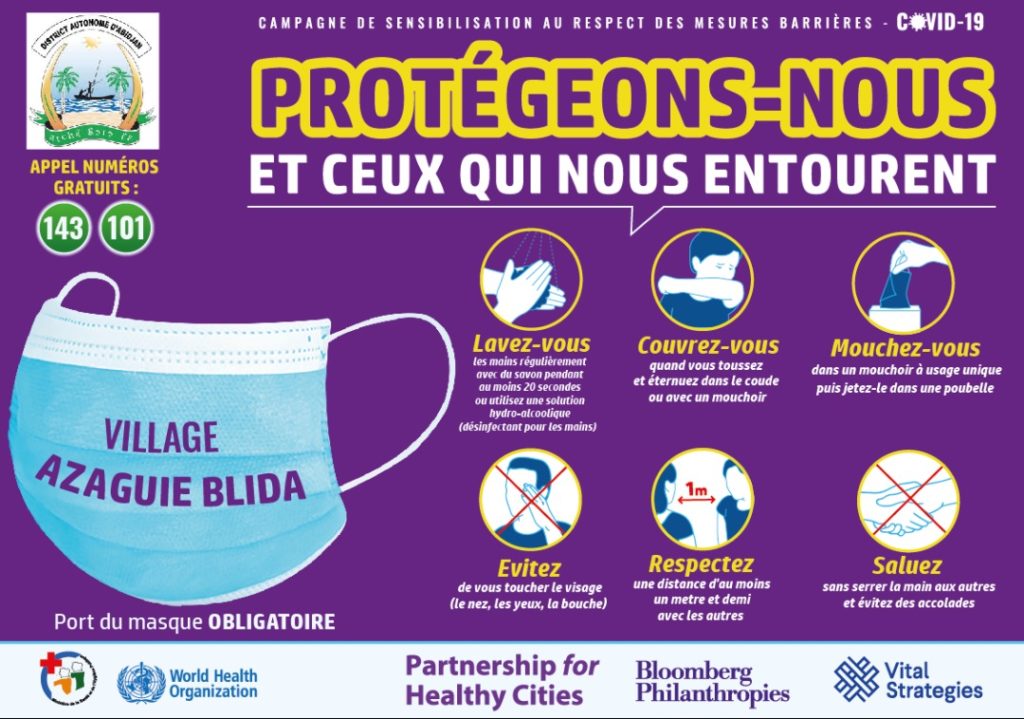
In 2020 and 2021, the city dispatched public health workers to markets and other neighborhood gathering points to speak directly to residents about COVID-19. They started by countering the city’s “infodemic,” the magnitude of false information about COVID-19 prevention, by focusing on basic protections: The “3 Ws”—washing hands, wearing a mask, watching your distance. Later, once vaccines were available, these health workers assured residents that the shots were safe and effective and guided them to vaccination sites. In 2022, the 3 Ws and vaccine messaging were broadcast by seven radio stations, which also aired interviews with officials from the city’s Public Health and Hygiene Department. The radio campaign, which had national reach, was conducted in the four local languages spoken by 75% of the population.
Kigali, Rwanda: Vaccine Outreach by Community Health Workers
To address vaccine hesitancy in Kigali, the city launched a communication campaign that blanketed the airwaves with vaccine information via social media, broadcast media and mobile truck announcements. The two-month blitz earned more than 2.8 million impressions on social media, and an estimated 1.7 million people weekly viewed nine digital billboards located at key intersections around the city. In early 2022, with an eye on the emerging omicron variant, the Partnership supported the city of Kigali with a new version of the campaign that also encouraged adolescents aged 12-17 years to get vaccinated when they became eligible.
Buenos Aires: Peer-to-Peer Vaccine Outreach to Unhoused People
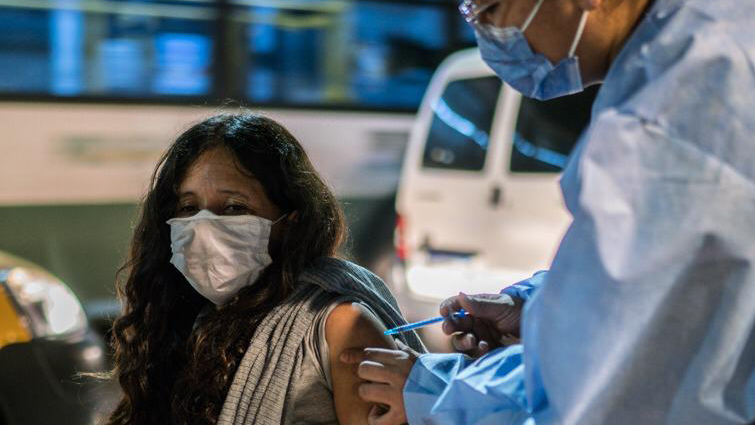
The city conducted a vaccination outreach campaign called Efecto Mariposa (Butterfly Effect), enlisting and training 44 formerly unhoused people to reassure those currently experiencing homelessness about the safety of the COVID-19 vaccines—and to connect them with streetside vaccination centers. The four-month project was a big success: More than 10,000 people who were unhoused or in situations of social and housing vulnerability were vaccinated, and an evaluation of the project generated recommendations for future outreach efforts.
Rio de Janeiro, Brazil: LGBTQ+ Peer-to-Peer Vaccine Outreach
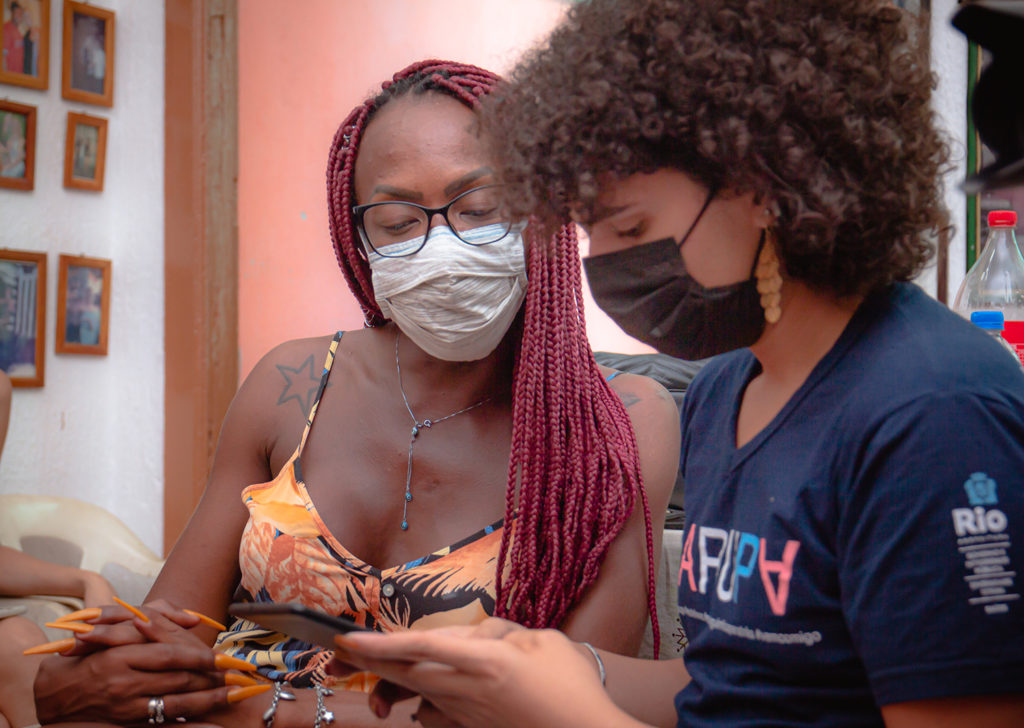
Rio de Janeiro’s Garupa Project offers another example of how peer-to-peer outreach can be used to reach isolated people. Trainees brought vaccines to transgender residents not connected to the national health care system, offered information on COVID-19 prevention, and helped sign them up to receive regular health care. The project vaccinated 553 people, created a database of 713 people to monitor vaccine follow-up and, through an extensive survey, provided the city with the most comprehensive data yet about the local trans community.
Phnom Penh, Cambodia: Hand-Washing and Sanitizing Stations in Schools and Markets
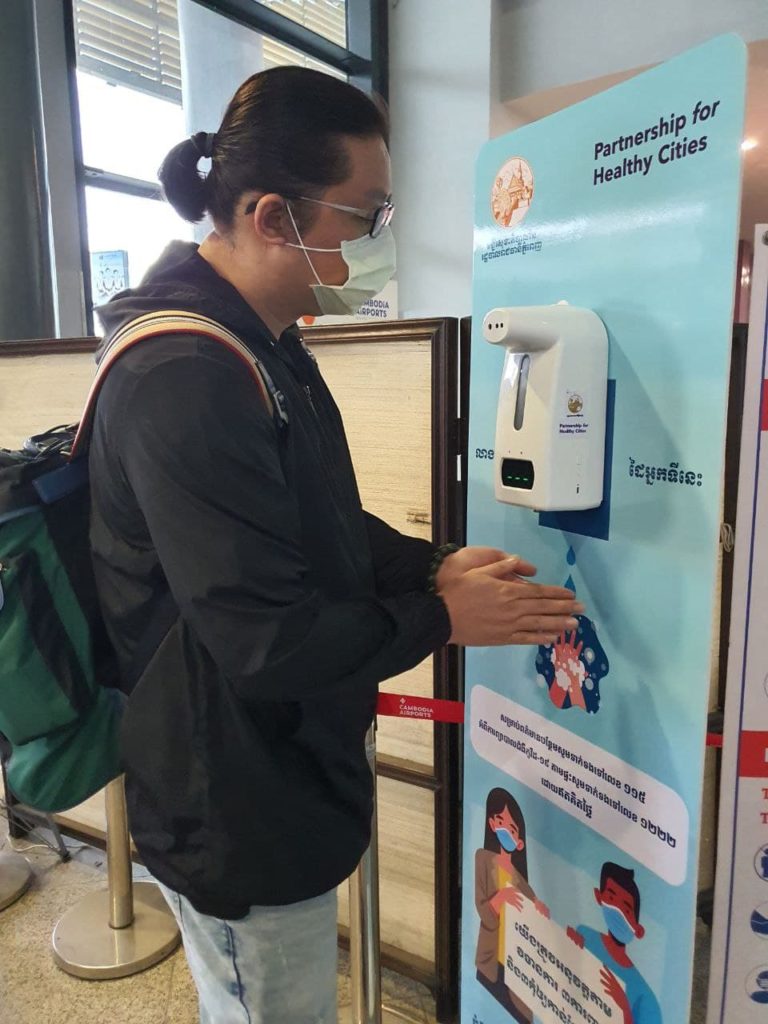
Concerned about the risk of coronavirus transmission in public places, Phnom Penh worked with the Partnership in 2021 to install hand-washing facilities, hand sanitizer stations, automatic thermometers and alcohol dispensing machines at high-traffic locations throughout the city—along with a total of 1,600 3 W’s posters and other printed materials. Among the beneficiaries were 43 schools and markets serving 92,000 people, as well as all 14 of the city’s municipal offices and the International Airport of Phnom Penh.
Jakarta, Indonesia: Hand-Washing Stations in Crowded Public Spaces
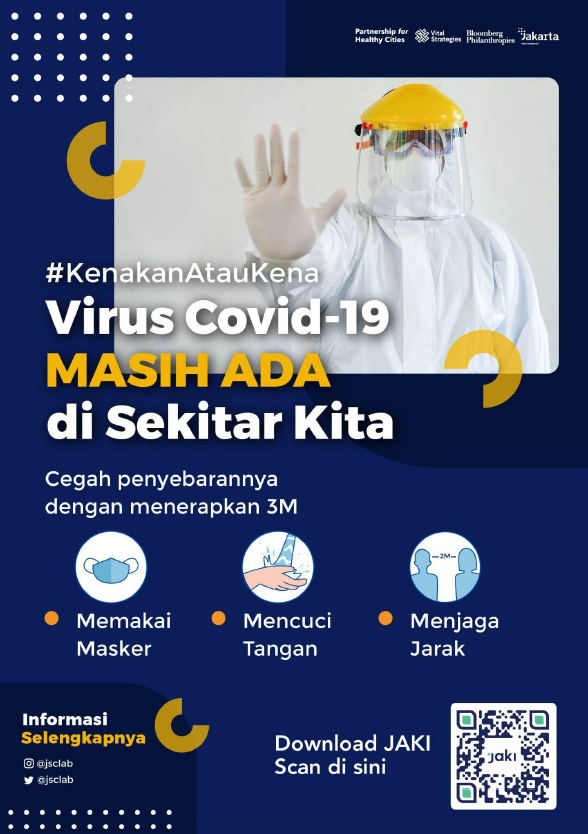
In Southeast Asia, Indonesia was one of the countries hardest hit by COVID-19. With the support of the Partnership, Jakarta launched a communication campaign in 2021 to raise awareness about COVID-19 and offer guidance on protecting oneself and others. Almost 20 million people viewed a 20-second PSA video on billboards and videotrons. In addition, 2 million people took advantage of hand-washing stations and hand sanitizer units installed in busy public spaces—such as markets, hawker centers and public transport hubs—which also carried public health information.
Amman, Jordan: Mass Media Communication Campaign on Public Transport
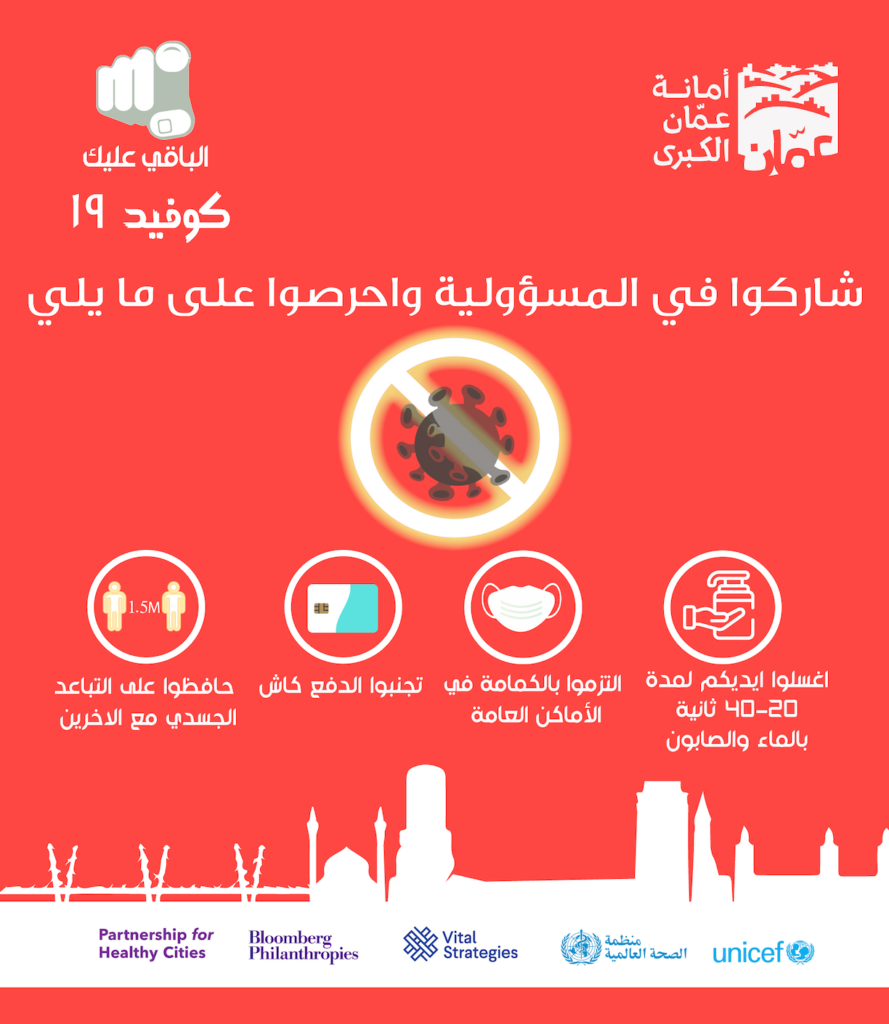
Amman was one of the first Partnership cities to launch a communication campaign in 2020 urging people to abide by public health and social measures and offering basic information about COVID-19. On billboards throughout the city as well as via social media, the messages targeted people who used public transportation and visited restaurants. Each social media post on the campaign was estimated to have reached an average of 180,000 people.
Athens, Greece: Distribution of Personal Protective Equipment and Provisions for People Who Inject Drugs
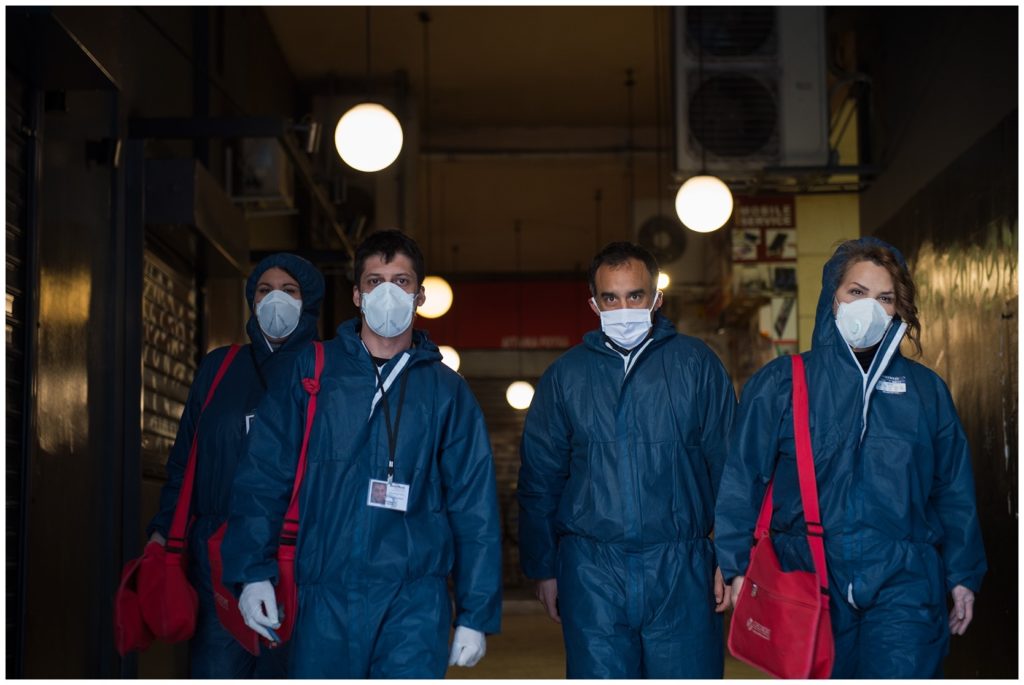
Thanks to precautionary measures enacted before COVID-19 took hold in Greece, Athens was spared a major outbreak in early 2020. Yet for the 7,000 Athenians who are unhoused or inject drugs, COVID-19 and many of the steps taken to slow the spread of the pandemic, such as business closures and social distancing, only worsened their precarious situation. That’s why the municipal government partnered with civil society to bring health care services to people who are unhoused or use drugs, making naloxone kits available to prevent drug overdoses as well as supplies needed to minimize COVID-19 transmission such as gloves, masks and antiseptics.
Read more stories about COVID-19 outreach campaigns in cities that are part of the Partnership for Healthy Cities global network.
About the Partnership for Healthy Cities:
The Partnership for Healthy Cities is a prestigious global network of cities committed to saving lives by preventing noncommunicable diseases (NCDs) and injuries. Supported by Bloomberg Philanthropies in partnership with WHO, as well as Vital Strategies, this initiative enables cities around the world to deliver a high-impact policy or programmatic intervention to reduce NCDs and injuries in their communities. By collaborating with WHO and Resolve to Save Lives, the Partnership for Healthy Cities COVID-19 response is also working hand-in-hand with the world’s leading experts on epidemic prevention.
For more information, visit: www.cities4health.org and https://partnershipforhealthycities.bloomberg.org/
